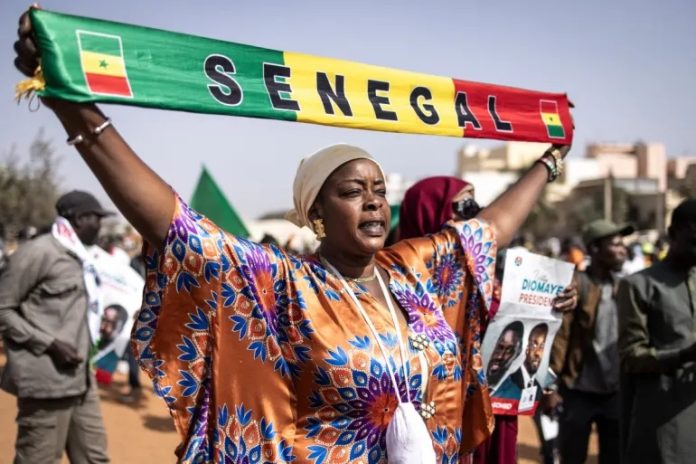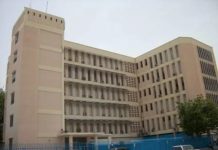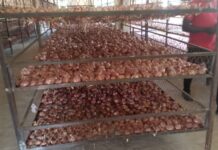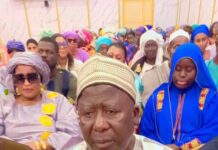
By: Kemo Fatty, School of International Affairs, Pennsylvania State University

Rooted in the struggle against colonialism and the quest for African unity, Pan-Africanism has long been a beacon of hope across the continent. From the early efforts of leaders like Marcus Garvey and W.E.B. Du Bois to the visionary ideals of Kwame Nkrumah and Patrice Lumumba, Pan-Africanism has been a driving force for liberation and empowerment. Now, against the backdrop of West Africa’s new political climate, we witness a resurgence of this ideology, igniting discussions among youths and firebrand politicians on the future of the continent and the role of institutions like the Economic Community of West African States (ECOWAS). But we must ask: Is this a catalyst for transformative change, a mere political propaganda to cling to power, a harbinger of the collapse of ECOWAS, or a regional dragnet (led by Francophones) against colonial influence?
The resurgence of Pan-Africanism amidst West Africa’s dynamic political landscape heralds a pivotal moment for the region, echoing the radical political movements of Western and European revolutions. Much like the French Revolution, ignited by the “Declaration of Rights of Man And the Citizens,” and the American Revolution, Africa’s call for Pan-Africanism reflects a quest for continental unity, rights and self-determination free from western influence. As the continent faces its own social and political upheavals, West Africa emerges as the driving force behind this vision, triumphing the galvanizing power of citizens towards the dreams of Africa’s freedom fighters.
While Southern and Eastern Africa have also championed Pan-African ideals, their efforts (base on conventional wisdom and advocacy) have yet to yield significant political progress. However, this new wave of political activism and development in West Africa may propel the continent towards a unified Pan-African identity. Yet, this journey is not without its challenges. Alongside the wave of democratic concessions, the region has witnessed coups and unconstitutional power grabs in the most recent times; Mali(2020), Guinea (2021), Burkina Faso(2022) , and Niger (2023), leaving a trail of political polarization and regional isolation.
As a continent with many social divides, the quest for Pan-Africanism stands at a crossroads, poised between transformative change and lingering instability. The events unfolding in West Africa serve as both a catalyst for unity and a cautionary tale of the dangers of political unrest due to brutal arrest of constitutional orders, one of the ideals far from Pan-Africanism. It is within this context that the future of ECOWAS and Africa’s Pan-African dream hangs in the balance, awaiting the collective resolve of its nations to forge a path towards a brighter, more unified future.
Senegal’s own democratic journey, though marred by political turbulence, shows a great resilience in the face of adversity, with figures like Ousmane Sonko leading the charge for change. Inspired by their Francophone counterparts, who defied the status quo through unconventional means, Sonko’s camp remains undeterred despite challenges.
In Gambia, under the despotic rule of Yahya Jammeh, the people of Gambia endured two decades of constitutional stranglehold, marked by widespread torture, unlawful detention, and imprisonment. This reign of terror cast a shadow of fear and oppression over the nation, leaving a legacy of suffering and injustice. But 2016 was a turning point for Africa’s only smiling coast with political elites and opposition leaders uniting for change through conventional ballot. Therefore, one could argue that Gambia’s decisive action in 2016 represented a symbol of hope and certainty. But does this country (The Gambia) really have a leader with Pan-African ideology compared to his new Senegalese brother, president-elect Diomaye Faye? How will this define the Senegal-Gambia relation?
President Diomaye Faye’s emergence as a Pan-Africanist leader could also be interpreted as a departure from traditional nationalist rhetoric, as he advocates for unity and anti-corruption measures. However, his silence on regional military interventions raises questions about his stance on such actions as he failed to condemn it in his first victory speech.
Could President Diomaye’s leadership as potential future ECOWAS Chairman mark a resurgence of Kwame Nkrumah’s Pan-African vision? Such a shift may redefine ECOWAS’s role as a regional powerhouse, potentially spearheading efforts to quell political instability and uphold democratic principles across West Africa. Sadly, this regional powerhouse, since its last successful mission in Gambia’s capital Banjul (2017) has proven incapable of handling tensions and negotiations within the region as despotic regimes strangled democratic processes and legitimizing their rule before disgruntled citizens.
Based on my analysis on his psychological leadership personality, President Diomaye is perceived more as a nationalist rather than a pan-Africanist, likely to be significantly influenced by the country’s democratic standing as one of the leading democracies in Sub-Saharan Africa. Consequently, he may soon be compelled to denounce aggressive political upheavals perpetrated by his counterparts (who uphold Pan-African beliefs through unconventional means) in other Francophone countries. This will create regional divides and polarization.
Leaders such as Malema and his EFF movement in SA, along with eloquent scholars like PLO Lumumba, epitomize pure Pan-Africanism accord through their political ideology and global advocacy efforts.
However, amidst the threat and instability posed by recent political developments on institutions and governance in west Africa, particularly Francophone nations, the ideals of Pan-Africanism will remain an unassuming political ideology. It is therefore in my opinion that, holding all other factors constant, it is evident that Africa will continue to be hesitant towards embracing Pan-Africanism until democracy is allowed to thrive through conventional processes. Thus, creating a peaceful environment must take precedence before fostering a political consciousness.
To sum it up, how can West Africa’s approach and emergence as a driving force for Pan-Africanism inspire and influence other regions of the continent to pursue a unified vision of African Unity and progress?
Kemo Fatty, School of International Affairs,
Pennsylvania State University.





